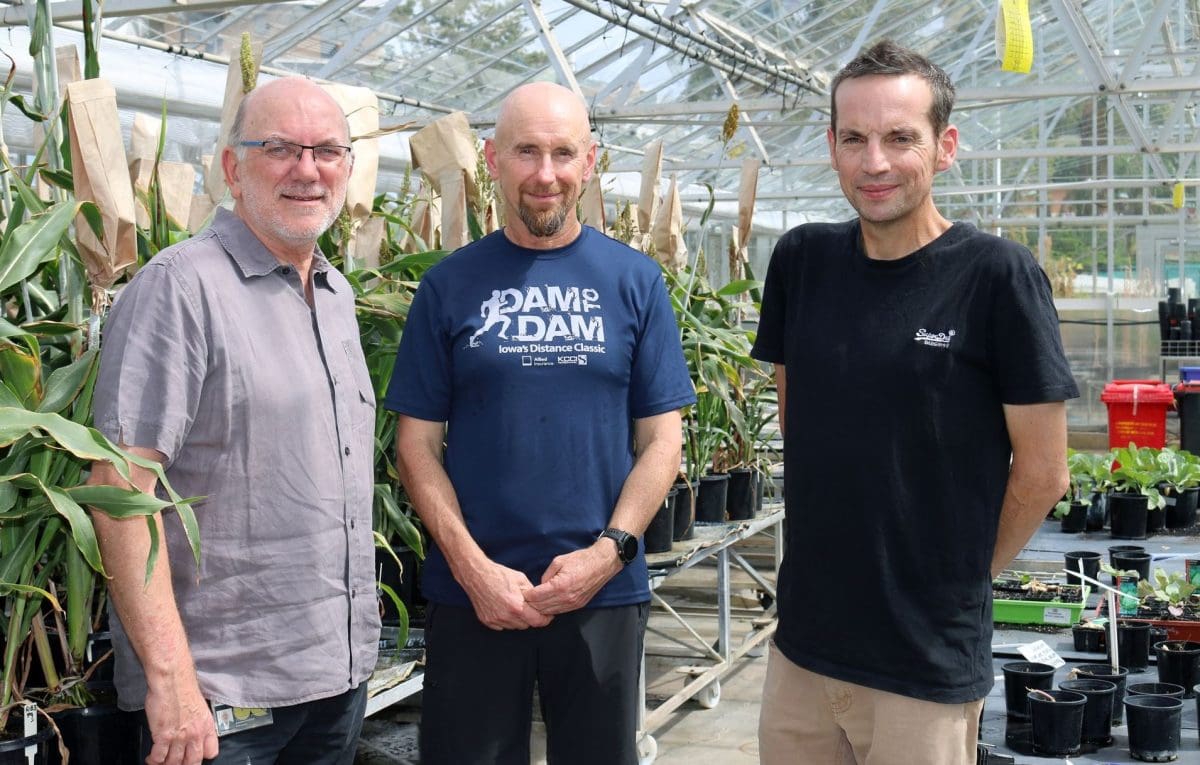
UQ professors Graeme Hammer, Mark Cooper and Ben Hayes. Photo: QAAFI
AN EXTENSIVE analysis of the untapped genetic potential of wheat by an international team led by the UK’s Rothamsted Research shows global yields could be doubled.
The team included Professor Mark Cooper from the Queensland Alliance for Agriculture and Food Innovation (QAAFI), and found that utilising genetic variations, advanced breeding tools and improvements in soil and crop management are key to closing the genetic yield gap.
Prof Cooper, from QAAFI’s Centre for Crop Science, said the research used a crop model to evaluate ways of increasing the wheat yield through targeted breeding and selection for novel trait combinations.
“A range of opportunities were identified that varied with global geography,” Professor Cooper said.
That included developing wheat varieties tailored to each region.
The research team used data on the contribution of different genes to individual plant traits such as size, shape, metabolism and growth, running millions of computer simulations to design “perfect” wheat plants.
They analysed 53 wheat-growing regions across 33 countries in all wheat-growing environments.
UK-based study co-lead Dr Mikhail Semenov said in all cases, current wheat varieties were found to be underperforming for grain yield.
“Current wheat cultivars are, on average, only at the half-way point with respect to the yields they could produce given the mismatches between their genetics and local wheat growing conditions,” Dr Semenov said.
“Global wheat production could be doubled by the genetic improvement of local wheat cultivars without increasing global wheat area.”
Wheat is the world’s most widely grown crop, and in terms of consumption, is the second most important crop after rice.
Global harvests are in the region of 750 million tonnes.
The study suggested that optimising plant traits like tolerance and response to drought and heat stresses, the size of light-capturing upper leaves, and the timing of key life-cycle events could boost harvests substantially.
Professor Cooper said the results identified a number of promising new opportunities to focus future interdisciplinary research on key trait networks and the combined breeding and agronomy technologies that will be required to close current yield gaps and underpin global food security in a sustainable way.
“The important next step is to evaluate these predicted opportunities experimentally within the context of the genotype by management by environment on-farm conditions for the different wheat producing areas investigated globally,” Professor Cooper said.
The research was published earlier this month in Nature Food, and involved leading wheat experts from Denmark, France, Germany, The Netherlands and Mexico.
The Queensland Alliance for Agriculture and Food Innovation is a research institute at The University of Queensland supported by the Queensland Government via the Queensland Department of Agriculture and Fisheries.
Source: QAAFI

HAVE YOUR SAY